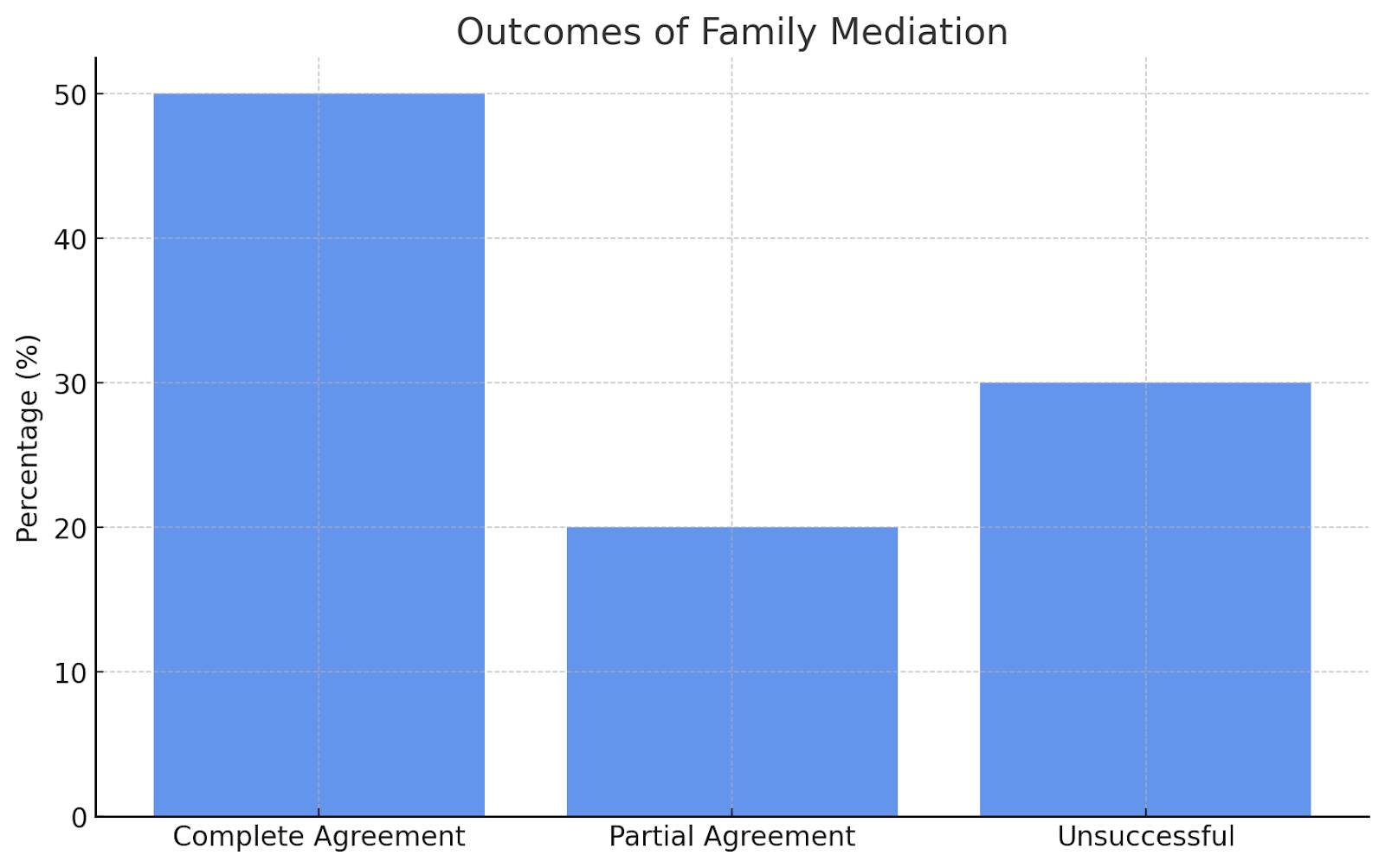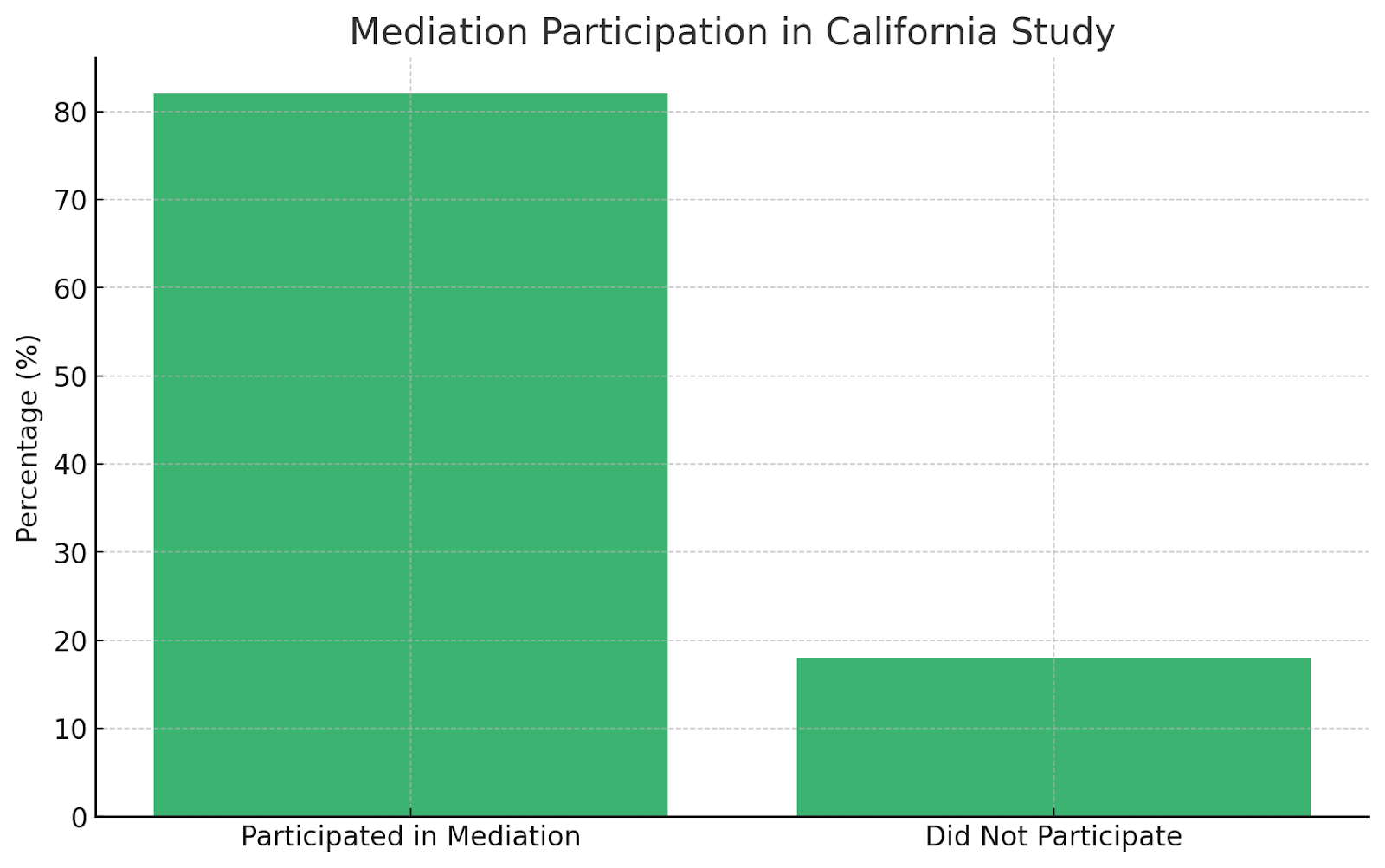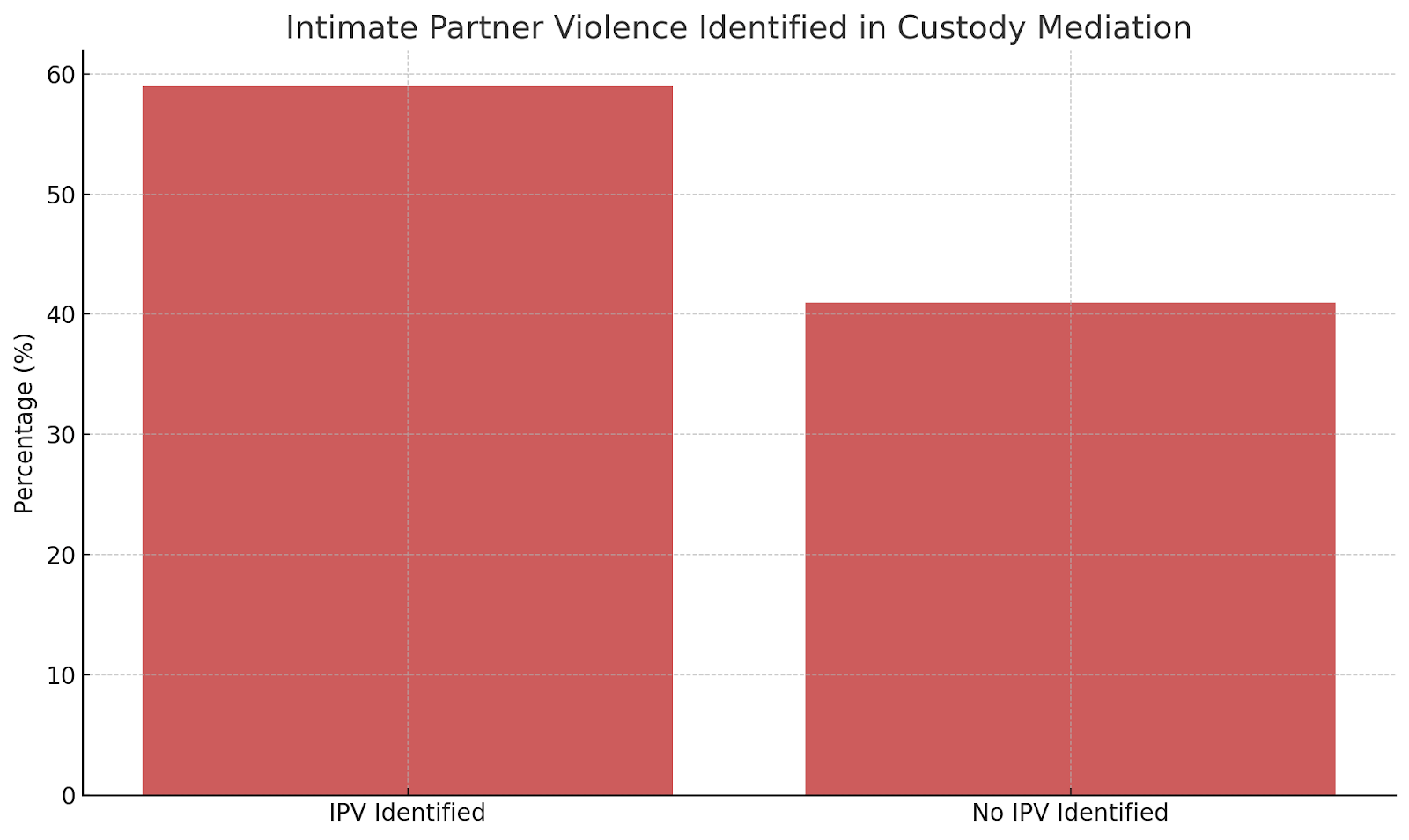Professional Mediation Services
Our Chicago mediation attorney understands that resolving legal disputes requires skill, strategy, and compassion. Mediation has become one of the most effective alternatives to litigation, empowering individuals and families to resolve disagreements efficiently while preserving relationships. In Illinois, the mediation process is guided by confidentiality and voluntariness, offering a safe environment where both parties can speak freely and work toward fair solutions.
At Hurst, Robin, Kay & Allen, LLC, we use our in-depth knowledge of Chicago mediation laws to help clients handle challenging issues with confidence. We believe mediation should reduce conflict, save time, and protect emotional and financial well-being. Every case we handle is approached with personal attention, so that each client understands their rights and options under Illinois law. Our focus is on achieving meaningful outcomes, whether that means preserving a family relationship or resolving a high-stakes business matter. Attorneys Brian Hurst and Olga Allen were awarded 2025 Super Lawyers, underscoring our Chicago, IL law firm’s commitment to bringing compassion and advocacy to clients in Chicago and the surrounding areas.
The Mediation Process in Chicago
Mediation involves a neutral third party (the mediator) who facilitates productive discussions between disputing parties. The process remains voluntary and confidential, meaning that participants retain control of the outcome. This approach differs from litigation, where a judge decides the result. Through mediation, parties can express concerns openly, explore creative solutions, and work toward an agreement that aligns with their needs and Illinois legal standards.
Our family law attorneys guide clients through every stage, providing clarity and compliance:
- Initial Consultation – We evaluate whether mediation is suitable for your situation.
- Mediator Selection – We help identify an experienced, neutral mediator suited to your dispute.
- Preparation – Our team organizes documents, defines goals, and prepares negotiation strategies.
- Mediation Sessions – We attend sessions to provide legal advice and support, helping ensure fair negotiations.
- Agreement Drafting – Once terms are reached, we review the agreement for accuracy and legal enforceability.
- Finalization – The agreement becomes a binding document under Illinois law when properly executed.
This structured approach protects your rights and makes sure that agreements stand up to future challenges.
Understanding Mediation
Mediation can be used across multiple legal areas, including family, commercial, real estate, and employment disputes. What sets it apart is its flexibility and emphasis on collaboration. Instead of allowing a conflict to escalate, mediation encourages understanding and compromise.
Our Chicago mediation lawyer provides legal insight at every step. We prepare clients for discussions, anticipate opposing arguments, and explain the long-term implications of any potential settlement. This makes sure that clients make informed decisions that align with both their legal rights and their personal goals.
Marital vs. Separate Property in Divorce Mediation
In divorce mediation, understanding the difference between marital and separate property is critical. Marital property includes assets and debts acquired during the marriage and is generally divided equitably. Separate property includes anything owned before the marriage or acquired through inheritance or gift and typically remains with the original owner.
Our attorneys guide clients through this distinction with precision, making sure that each asset is properly categorized. We help couples mediate equitable property divisions that reflect fairness under Illinois law while preserving financial stability for both parties. By focusing on collaboration, mediation minimizes hostility and supports constructive post-divorce relationships.
How Mediation Can Help You
Mediation offers significant benefits compared to litigation:
1. Time and Cost Efficiency
Court proceedings can take months or years. Mediation often resolves disputes in a fraction of that time, reducing legal costs and stress. Because both parties participate in shaping the outcome, the process moves more efficiently and predictably.
2. Confidentiality and Control
Unlike public court hearings, mediation sessions remain private. Parties can discuss sensitive matters openly without fear of disclosure. They also retain control over decisions rather than leaving the outcome to a judge.
3. Preserving Relationships
Mediation reduces hostility and focuses on mutual respect. Whether addressing family issues or business conflicts, maintaining healthy communication helps sustain future cooperation.
4. Success Rate and Satisfaction
Studies show that over 70% of mediation cases result in full or partial agreements, and most participants report higher satisfaction compared to court outcomes. The ability to shape one’s own resolution creates greater peace of mind.
5. Collaborative, Less Adversarial Process
Mediation fosters understanding rather than competition. Our attorneys promote open communication so both sides feel heard and respected throughout the process.
6. Customized Solutions
Court judgments are often rigid. Mediation allows flexible arrangements tailored to your family, finances, or business. We ensure these solutions are practical, enforceable, and aligned with Illinois law.
Do’s and Don’ts Regarding Mediation
Do Bring Your Attorney.
Having our attorney makes sure you understand your rights and avoid mistakes that could cost you later.
Do Offer Compromise.
Show flexibility and willingness to negotiate. It builds trust and momentum.
Do Be Ready to Concede Minor Issues.
Know what you can compromise on to reach an overall fair outcome.
Do Show Empathy.
Seeing the other party’s perspective helps reduce tension and fosters cooperation.
Do Make It Clear You Want to Avoid Court.
This mindset encourages both sides to fully commit to the process.
Don’t Mediate If There’s Abuse.
Safety is the priority. If necessary, request shuttle mediation where parties are separated.
Don’t Skip Legal Representation to Save Money.
Our attorney’s role in reviewing agreements protects you from future financial or legal harm.
Don’t Come With a Closed Mind.
Mediation works best when both parties are open to creative, flexible solutions.
Don’t Negotiate What You Don’t Understand.
If complicated finances or contracts are involved, seek professional advice before agreeing.
Chicago Mediation Infographic
Chicago Mediation Statistics
Family mediation is an increasingly utilized method for resolving disputes related to divorce, child custody, and financial arrangements. It offers a collaborative alternative to traditional litigation, aiming to transform conflict and promote mutual agreement.
Research indicates that family mediation is effective in a significant majority of cases. One survey found that mediation was successful in over 70% of cases, with 50% reaching a complete agreement and an additional 20% achieving partial agreements. Similarly, studies have reported success rates ranging from 70% to 80% in family dispute mediations.
In California, a comprehensive study involving 1,388 families across 51 counties revealed that 82% of families participated in mediation sessions, with a high rate of satisfaction reported among parents. This underscores the effectiveness of mediation in facilitating workable agreements, particularly concerning child custody arrangements.
However, the presence of domestic violence poses challenges to the mediation process. A study funded by the National Institute of Justice found that mediators identified intimate partner violence in 59% of cases during custody mediation sessions. This highlights the need for effective screening and tailored approaches to ensure the safety and fairness of the mediation process in such contexts.
Mediation FAQs
What Legal Issues Can Be Resolved Through Medication in Chicago, IL?
Mediation in Chicago can help resolve a broad range of disputes, including family law matters (divorce, parenting visitation, child custody, and support), civil conflicts (contracts, landlord–tenant issues, real estate), and employment disputes (wrongful termination, discrimination, or workplace grievances). The process is voluntary and collaborative—its success depends on both parties’ willingness to participate and find common ground. With guidance from our qualified Chicago mediation attorney, most disputes can be addressed privately and efficiently outside of court.
Is Mediation Legally Binding in Chicago, IL?
The mediation process itself is non-binding until both parties sign a written settlement. Once formalized and, if applicable, approved by the court, the mediated agreement becomes legally enforceable under Illinois law. This means it carries the same weight as a court order, and failure to comply may result in enforcement actions. Our family lawyer makes sure that all terms are properly drafted and protect your long-term rights.
How Long Does the Mediation Process Typically Take in Chicago, IL?
The length of mediation varies by case difficulty and cooperation level. Many disputes resolve in one to three sessions, while more complicated matters—like high-asset divorces or business disputes—may require several meetings over weeks or months. Even in complicated cases, mediation is significantly faster and less expensive than going to trial, giving participants more control over timelines and outcomes.
Are Mediators in Chicago, IL Required to Have Specific Qualifications or Certifications?
Illinois does not require statewide certification for mediators, but professional training in conflict resolution and Illinois mediation law is highly recommended. Many Chicago mediators are attorneys or retired judges who bring years of legal and negotiation experience to the table. Choosing a mediator familiar with your type of dispute—especially family or civil matters—can make the process smoother and more productive.
Can Mediation Be Used to Modify Existing Legal Agreements or Court Orders in Chicago, IL?
Yes. Mediation is often used to update or modify court orders when circumstances change. In family law, this may include adjustments to parenting plans, custody arrangements, or support obligations. The process allows both parties to discuss revisions constructively and reach new agreements without returning to litigation—saving time, money, and emotional strain.
Can Mediation Still Help If Communication Has Completely Broken Down?
Yes. Even when parties struggle to communicate, a trained mediator can help facilitate structured, respectful dialogue. Mediators are skilled at managing tension, clarifying misunderstandings, and ensuring each side is heard. If needed, “shuttle mediation” can be used—where each party remains in separate rooms while the mediator moves between them—to maintain safety and civility.
What Happens After Mediation is Complete?
Once both sides reach an agreement, your attorney reviews the terms to make sure they comply with Illinois law and protect your interests. The finalized document is then signed and, in family law cases, submitted to the court for approval. Once approved, the agreement becomes a binding order. If partial agreements are reached, unresolved issues can still be presented to the court while keeping the settled terms intact.
Contact Our Chicago Mediation Attorney Today
At Hurst, Robin, Kay & Allen, LLC, our Chicago mediation lawyer is committed to providing our clients with exceptional legal guidance through the mediation process. We understand the details of Illinois mediation laws and strive to offer a path to resolution that is both efficient and effective. Our approach is rooted in a deep understanding of the legal system and a genuine commitment to our clients’ best interests. By choosing to work with us, parties can benefit from a collaborative process that seeks to achieve amicable resolutions tailored to the unique needs and circumstances of each case.
Our dedication to excellence and client satisfaction sets us apart as a leading firm for mediation services in Chicago, IL. Our firm has helped thousands of individuals and families with legal matters and takes pride in our ability to work through challenging disputes with professionalism and skill, always aiming to minimize stress and maximize outcomes for our clients. Whether you are facing a family law dispute, a marital conflict, or any other legal issue that may benefit from mediation, our team is here to guide and support you. Our attorneys have decades of combined experience practicing family and our firm proudly has over 100 five-star Google reviews from clients. Trust in our expertise and commitment to excellence as we work together toward achieving a positive resolution through mediation. If you’re facing a dispute and want a faster, more private resolution, contact us today to speak with our dedicated Chicago mediation attorney and take the first step toward an agreement that works for you.
Hurst, Robin, Kay & Allen, LLC — Chicago Office
Chicago Office30 N La Salle St, Suite 1210
Chicago, IL 60602
New Clients: 312-854-7670 | Existing Clients: 312-782-2400






